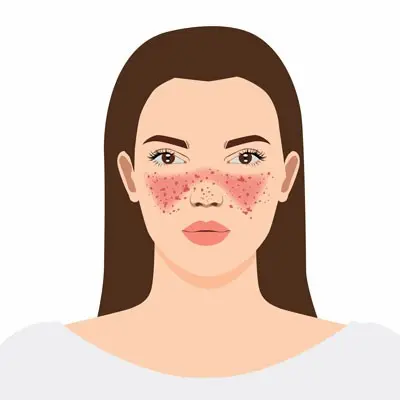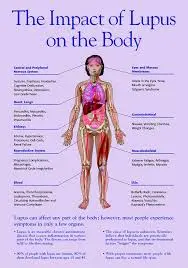My Joints hurt. What’s wrong with Beatrice?
Written by: Marcos Otero, Retired Physician Associate
Presentation
Beatrice came to the clinic complaining that over last 5 days she has had fatigue, fever, and joint pain. She is 20 years old and says she has experienced similar episodes over the last several years that began when she was 16. She says that these are sporadic and she has seen multiple clinics over the years.
She denies any fever, weight loss, nausea, vomiting or rash today or over the last 5 days. She does admit that sometimes over the last few years she breaks out with rash of cheeks and arms when exposed to sun for too long.
She says that in the past she has gotten better within a day or so but feels worse this time. She says that she has never had any workup and was always treated and released.
Exam
The examination today is normal as there is no fever or joint swelling. She appears depressed and tired and does admit she has not slept well and has a lot of other things going on at home that have her stressed and mildly depressed her.
The provider believes it may be her depression and a viral syndrome. She is prescribed an anti-inflammatory and told to follow up in several weeks. The clinic called her a few days later to see how she is doing and she admits that once she took the medication she improved almost immediately. Beatrice does not follow up and does not return to the clinic for almost five years.

Beatrice now returns after five years and again presents with generalized joint pain this time with swelling of her wrist and fingers. She has a fever and a butterfly looking rash on her cheeks. She appears to be in pain and cries easily. She admits she has been to emergency room several times over the last five years for the same.
What next?
Laboratory studies which had not been done in past are requested. Beatrice is started on NSAID and prednisone at a high dose and told to return in several days to discuss the lab studies. The lab studies include a CBC, RA, ANA, Sedimentation Rate, Thyroid panel, and CMP.
Beatrice returns 5 days later. She has already improved significantly and her joint swelling has almost resolved. She is much happier and grateful. The labs are reviewed and her ANA and RA was noted to be very strongly positive with and elevated white count and sedimentation rate. Other labs were insignificant.
Lupus
Beatrice has Systemic Lupus erythematosus (SLE or Lupus)!
What is Lupus?
It is an auto-immune disease that affects women ten times more than men. Most cases presenting in the second to third decade of life. It causes inflammation and tissue damage. Lupus may affect the skin, joints, kidneys, lungs, nervous system, and other organs. The cause is uncertain but it is believed that genetic, environmental, and hormonal factors play a role. Like Beatrice, most patients have episodes when the disease is active with symptoms followed by periods when it is quiet or in remission.
Since the symptoms are non-specific it can take years to diagnose as it imitates so many other non-specific illness’.

Symptoms
Several organ symptoms may be affected by the inflammation caused by LUPUS:
- Kidneys: lupus can cause kidney damage and failure, indicated by itching, chest pain, nausea, vomiting and edema.
- Brain: lupus can cause headaches, dizziness, behavior changes, strokes or seizures. Patients may also experience memory or concentration problems.
- Circulation: lupus can lead to anemia, increased risk of bleeding or blood clots, as well as vasculitis. Lupus may also increase the risk for heart attack.
- Bones: lupus, as well as the steroids sometimes used to treat it, may increase the risk of avascular necrosis of bone. This is most common in patients’ hip joints.
- Pregnancy: women with lupus have an increased risk for miscarriage, preeclampsia and preterm birth.
According to CDC, under diagnosis persist because symptoms are often nonspecific. Initial presentation is constitutional The classic presentation of a triad of fever, joint pain, and rash. These of course are seen in many other diseases as well. Lupus can be mortal. The mortality is mainly caused by organ failure, such as kidney, infection or cardiovascular disease.
The moral of this is that not all illnesses are so easy to diagnosis like seen on TV and that follow-up is important.
Beatrice was started on medications and referred to rheumatology. She is now 50 and doing very well.



